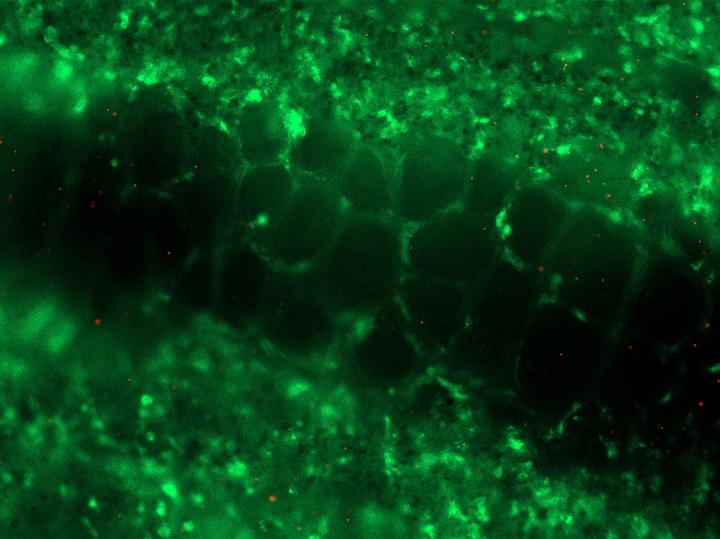New method aids study of poultry infections
A method of sampling tissue could aid research into therapies for chicken lung diseases.

A novel way to study key poultry infections and aid the development of vaccines has been developed by researchers.
Their approach can be used to study the respiratory tract in poultry, which is an important entry route for disease and delivery method for vaccines.
It potentially reduces the number of animals required for scientific studies.
Sampled cross-sections of lung tissue from adult chickens can mimic the whole lung in a live bird, scientists found.
Samples remained viable for testing over several weeks, enabling researchers to track their response to treatments over time.
Efficient testing
Researchers from the Roslin Institute and the French National Research Institute for Agriculture, Food and Environment (INRAE) studied adult chicken lung samples recovered using a method known as precision-cut lung slicing.
The approach can generate tens to hundreds of thin samples from a single organ.
The team found that immune cells in the tissue were suitable for testing their response to vaccines or disease treatment.
They also worked out the optimum culture conditions in which to preserve the shape and mixed populations of cells in samples.
These samples can be applied to a range of research and are especially useful to investigate respiratory infections. We are currently using these samples to understand flu, help us find new treatments and understand why some chickens can cope with viruses while other chickens cannot.
Working in close collaboration with our European colleagues has enabled us to develop this useful technique, which will support our understanding of poultry health while limiting the use of animals in research.
Their study, published in Veterinary Research, was supported by the European Union’s Horizon 2020 Research and Innovation Programme, along with a collaboration between the Biotechnology and Biological Sciences Research Council and the US department of department of Agriculture (USDA).
** The Roslin Institute receives strategic investment funding from the Biotechnology and Biological Sciences Research Council and it is part of the University of Edinburgh’s Royal (Dick) School of Veterinary Studies. **


